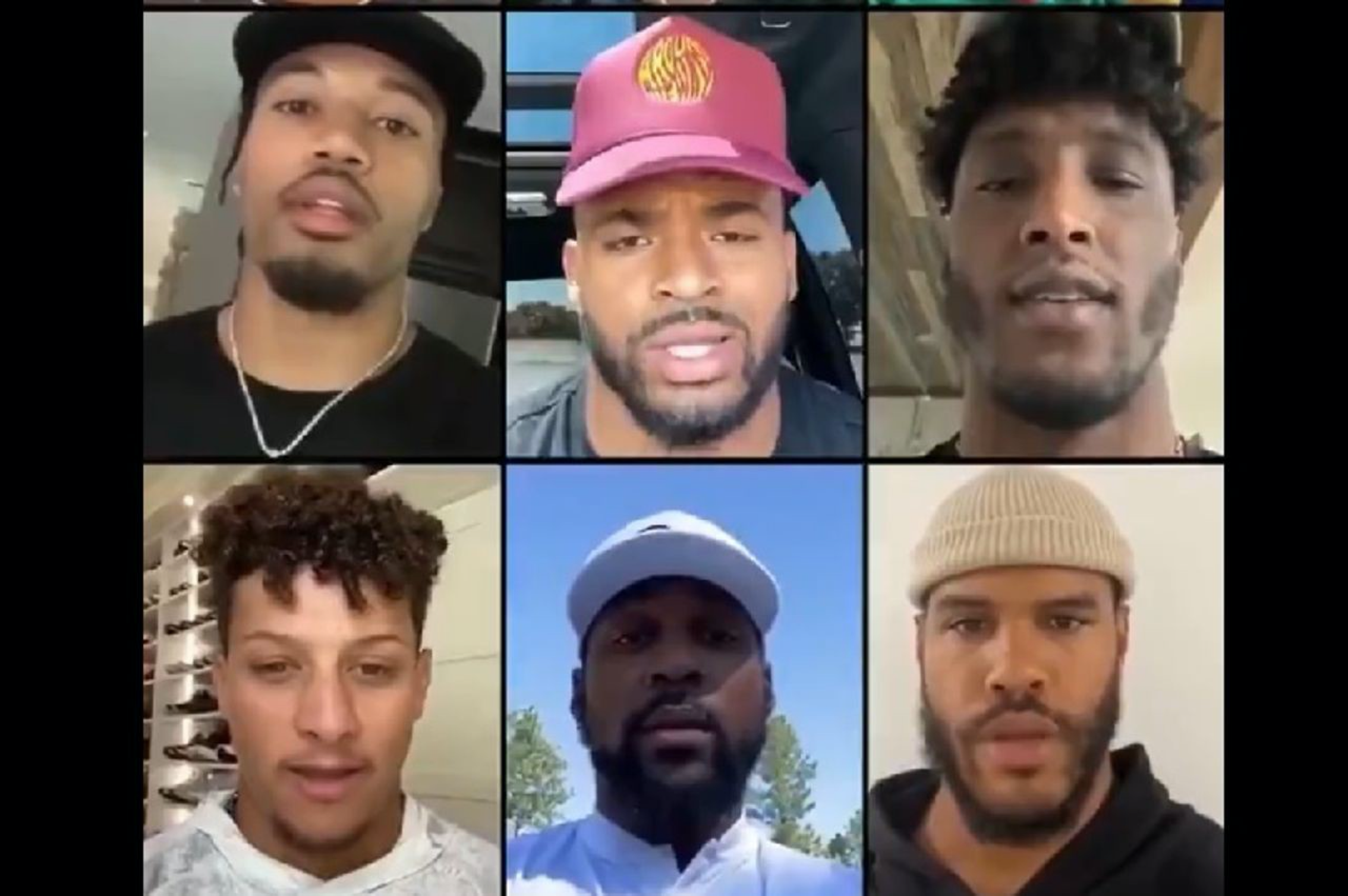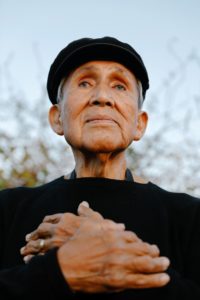Under intense pressure, NFL commissioner Roger Goodell gave players what they wanted: an admission that the league had fumbled issues of race.
Roger Goodell needed to say something. The topic that once threatened the NFL’s multibillion-dollar empire—player protests against police brutality during the national anthem—was back. And the commissioner needed to stop the league from tearing itself apart again in the wake of the killing of George Floyd.
Over 72 supercharged hours late last week, superstar players sniped at each other publicly and put unprecedented pressure on the league to fight racism and endorse their ability to protest against it.
Drew Brees, a future Hall of Fame quarterback, issued a humbling apology for his comments on the subject. Some of the game’s brightest young stars released a powerful video demanding action from the league on systemic racism—with help from a pair of NFL staffers who went against their bosses to help produce it.
By Friday afternoon, Goodell was scrambling to respond. He held an emotional town hall meeting with employees and then issued his own blockbuster: a mea culpa video in which he said ”we were wrong for not listening to NFL players earlier” and endorsed players’ right to protest peacefully.
Then, two hours before the message was to be released, Goodell was preempted by renewed criticism of player protests by President Trump. It seemed that the league had come full circle back to the 2016 and 2017 seasons, when the political argument over player protests led by former San Francisco 49ers quarterback Colin Kaepernick badly divided the league and its audience.
The bracing sequence of events showed clearly that, in the debate about social injustice and police brutality, something has changed between 2017 and today.
Goodell in the past often said players should stand for the anthem and once endorsed a short-lived policy that would have required them to do so.
In the league town hall, people who attended the talk said, Goodell spoke about an employee who emailed him describing a feeling of hopelessness. He also said the moment brought him back to emotions he felt as a kid when he lived in Washington and watched up-close as demonstrators pushed back against the Vietnam War.
“He was very, very emotional,” said one person who attended the town hall. “He felt the same emotions we’ve all been feeling.”
Goodell’s message could prove thorny ahead of a season that promises escalated political tensions against the backdrop of a presidential election. Multiple executives said they expected renewed, broad player protests and couched it as an inevitability.
Goodell had been moving toward making a big statement for a week. But the league’s efforts to show that it understands the issue were haunted by the memory of the Kaepernick case.
On May 30, Goodell called league staffers as he watched national frustration build, and he felt compelled to personally weigh in. The country was being flooded by protests in the aftermath of George Floyd’s killing, and the connection to the NFL was deep in symbolism. Floyd was killed after a police officer placed a knee on his neck. In 2016, Kaepernick launched player protests against police brutality by taking a knee during the national anthem. As protesters everywhere took a knee in the past week, the league was at the center of a charged, national controversy.
But Goodell’s statement that Saturday night, which didn’t include a specific mention of race, faced criticism. Two players on the Minnesota Vikings, who play in Minneapolis, the city where Floyd was killed, soon called the league out.
“Your statement said nothing. Your league is built on black athletes. Vague answers do nothing,” Anthony Barr and Eric Kendricks both wrote on Twitter. “And we know what silence means.”
By Wednesday, the uproar reached new heights when New Orleans Saints quarterback Drew Brees, in an interview with Yahoo Finance, said he would “never agree with anybody disrespecting the flag of the United States of America or our country.” The remark placed one of the NFL’s most celebrated players on the receiving end of severe criticism—from his own teammates, athletes and pundits—for comments that were viewed as insensitive.
That night, Bryndon Minter, a creative producer at the NFL, messaged Michael Thomas, the star Saints star receiver who catches many of Brees’s passes. Minter had a hunch Thomas, who has been outspoken on these topics, might want to say something after his teammate’s comments. Minter was joined by another NFL employee Nick Toney, and they were willing to risk their jobs to help.
Minter and Toney began collaborating with Thomas on a video, Minter informed his boss that they were producing a piece that would call out their employer. “I’d been at peace with losing my job this whole time,” said Minter, who ultimately kept his job.
They also felt they were capturing the voice of not only the players, but black employees across the game who were looking for the league to take more forceful action. “A lot of us, together, collectively over hours and hours of Zoom calls expressed how we felt, not just to upper management but to each other,” Toney said.
While they raced to put together the video on Thursday, Brees issued a public apology. As the day went on, the NFL put out a statement that included the words: Black Lives Matter. It was the first time the NFL’s official Twitter account used the phrase. The series of tweets also highlighted the $44 million the league has given to causes that fight systemic racism and pledged an additional $20 million for this year.
That Thursday night, the video was released. It features the game’s biggest stars—Thomas, Patrick Mahomes, Saquon Barkley, Deshaun Watson and more—demanding the NFL say it was wrong for silencing its players amid a broader message that included the players asking: “What if I was George Floyd?”
“Roger felt like they were speaking directly to him,” said an executive familiar with the commissioner’s thinking. “There’s been a lot of self reflection going on across the league.”
On Friday, the league invited employees to a company-wide town hall with an email featuring pictures of George Floyd, Breonna Taylor, Ahmaud Arbery and other African-Americans who have been killed in recent years. The meeting included talks from college professors and an open session in which black employees spoke about their experiences with racism.
Later, as NFL staffers put the final touches on Goodell’s video, another frenzy hit: Trump revived his criticism of the player protests during the anthem. In two tweets, the president said Brees should not have taken back his original stance about the protests and that people should stand for the anthem. “NO KNEELING!” he tweeted.
The president’s tweets reignited a feud that had quieted down. After Kaepernick began the protests against police brutality in 2016, Trump made the issue a regular talking point and assailed the peaceful demonstrations as unpatriotic. In 2017, players knelt en masse one weekend to rebuke the president after he referred to a hypothetical protesting player as a “son of a bitch” in a stump speech.
Shortly thereafter, the NFL released Goodell’s video, which echoed the players’ language. The resounding message—and the pivot it represented for the country’s most popular sport—was of Goodell’s own design, multiple executives said. “That was more his personal decision than it was an ownership decision,” another executive said.




